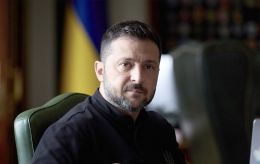Fractured memory: How Ukraine moves away from Soviet WWII myths
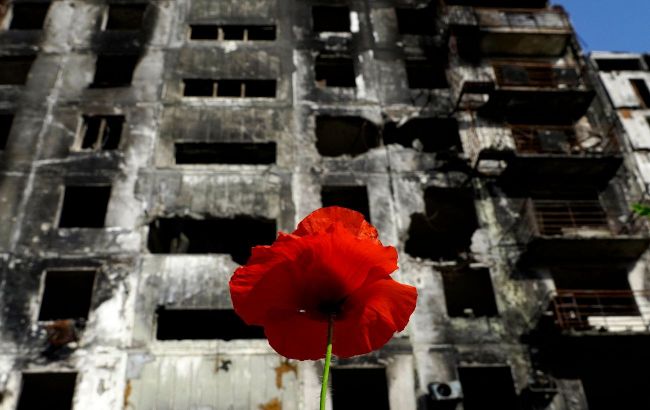 Photo: Commemorating WWII victims in modern warfare (Getty Images)
Photo: Commemorating WWII victims in modern warfare (Getty Images)
Ukraine inherited from the USSR a myth-filled tradition of World War II remembrancу. Anton Drobovych, Head of the Ukrainian Institute of National Remembrance, discusses in his column for RBC-Ukraine Ukraine's path to the European dogma and what has changed during the current war.
After the Soviet Union collapsed, Ukraine inherited a semi-fictional canon of World War II commemoration, which contained many elements of late Soviet official rituals and ceremonies, and was oversaturated with historically inaccurate myths and rather formal practices of honoring war veterans.
As with most complex worldview phenomena, the topic of Ukrainians' perception, experience, and comprehension of the truth about the greatest war of the 20th century has long remained on the margins of the Ukrainian political process. Well, politicians of various types took part in events where elderly veterans spoke to the gathered people, and received red flowers, the equivalent of 100 frontline grams, and a pension supplement. But it was mostly Soviet-era inertia, without even a hint of systematicity or orderliness.
Some calls from the academic community to rethink memorial traditions and clarify the key concepts that were used in the official paradigm to refer to the greatest war of the 20th century were not accepted by the political class, a significant part of which in the 1990s and 2000s was made up of former communists or red directors.
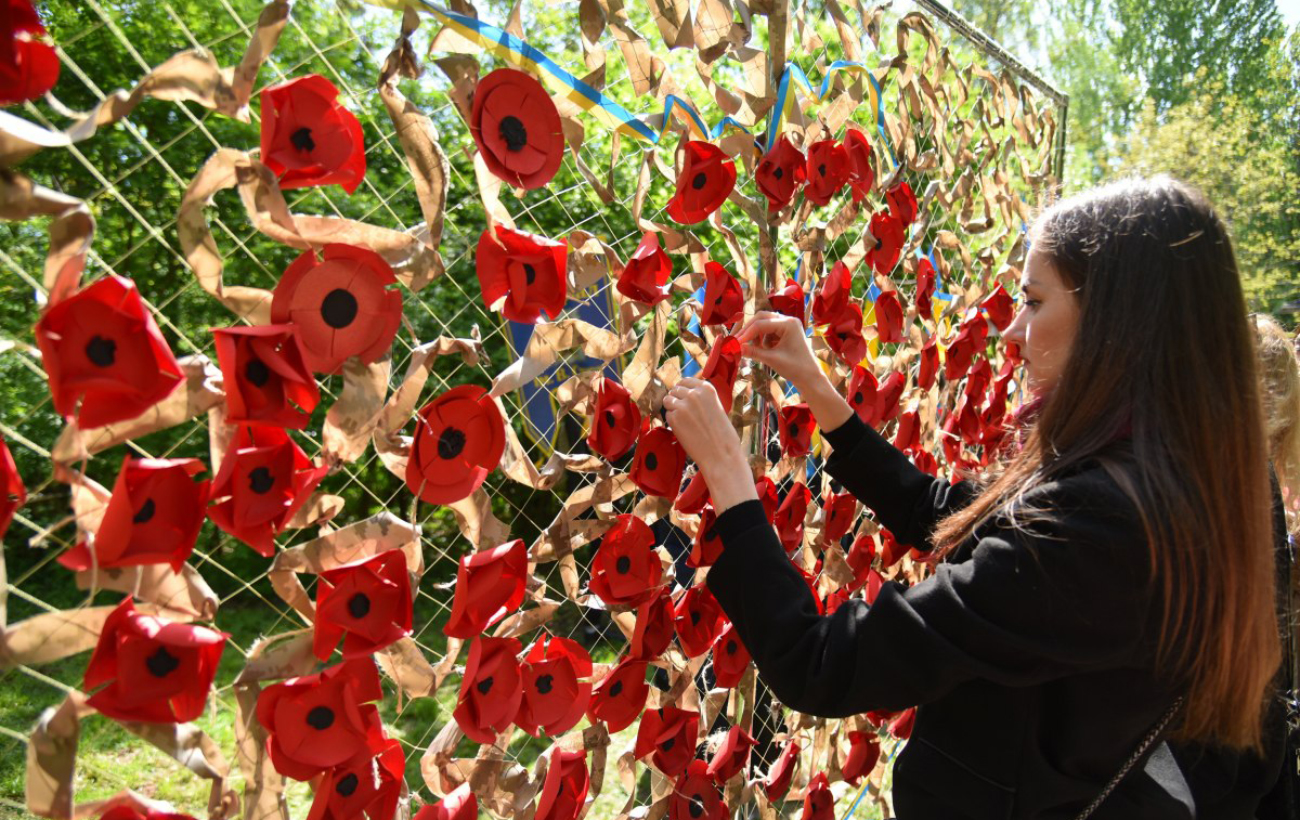 Photo: UNIAN
Photo: UNIAN
In 2000, there was an attempt to officially regulate the traditions of commemorating the war: the parliament passed a framework law On Perpetuating the Victory in the Great Patriotic War of 1941-1945. It effectively preserved most of the Soviet memorial practices and terms (particularly, key concepts such as Great Patriotic War, victorious nation, sacred duty, etc.), fixed a number of national measures, starting from the widespread use of the Victory Flag to the personalized payments for war heroes and strengthened social protection for veterans.
At the same time, it also mentioned the Second World War, tried to position (albeit vaguely) the role of the Ukrainian people in it, and fixed national and international obligations in constructing and protecting monuments and gravesites of soldiers who died between 1939 and 1945. In other words, there was a certain broadening of the optics and an attempt to catch European practices of commemoration, but it was extremely cautious.
However, even after the adoption of the law, the relevant date, memorial events, and traditions did not become a special state cult in Ukraine, but only an attribute of one of the key holidays of the late Kuchma era (second term of Ukrainian the then president Leonid Kuchma - ed.), which in the consciousness of people gradually have been turning into the final day of the long May barbecue vacations (between May 1 to 9).
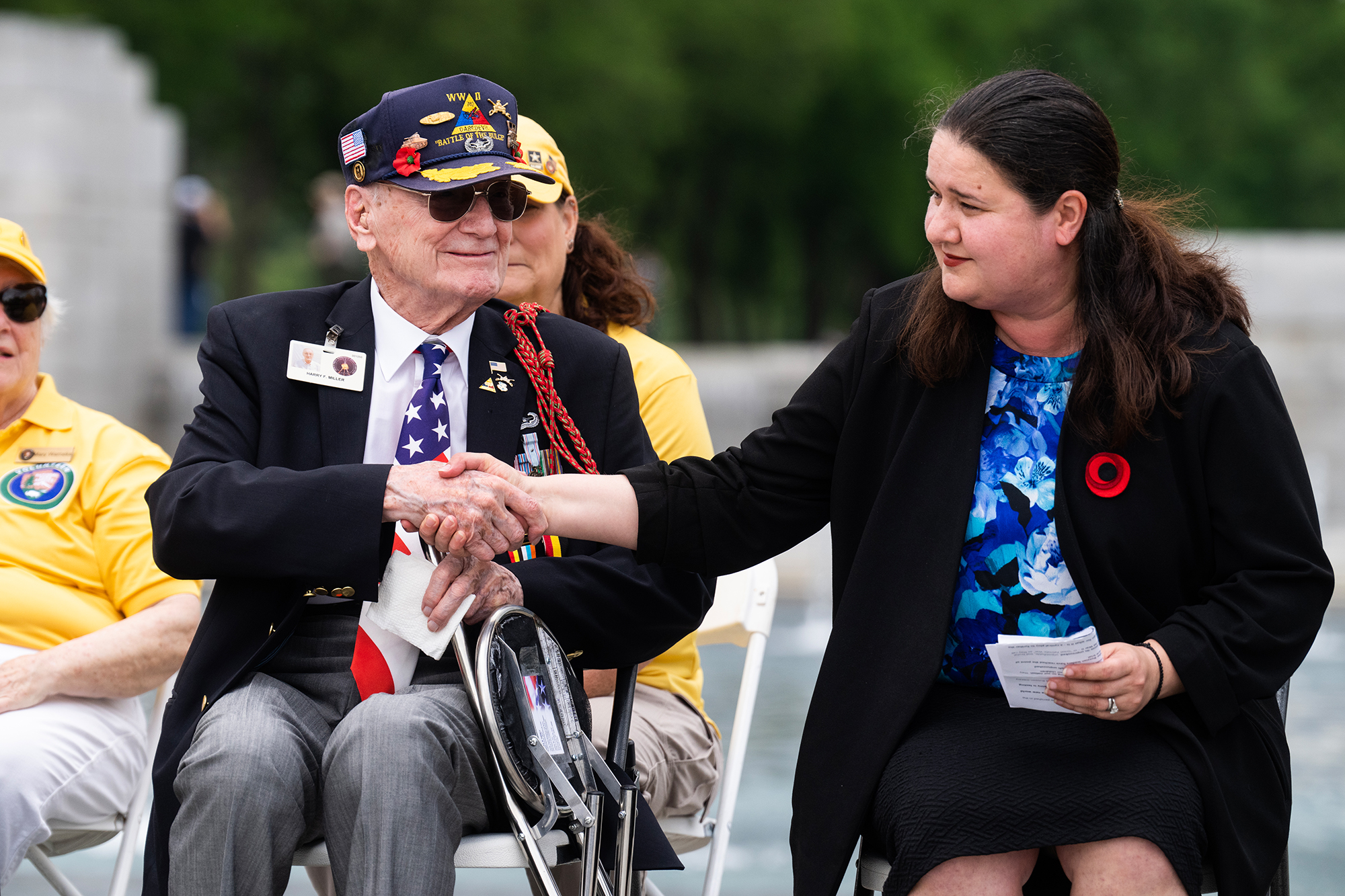 Photo: Getty Images
Photo: Getty Images
In the international arena, Ukraine has in fact worked with the topic of the Second World War as a secondary humanitarian and cultural supplement to more serious issues (economy, energy, security), without setting up infrastructure or museum projects abroad that would tell specifically about the role of Ukrainians in the war, without organizing influential academic dialogues on the peculiarities of the Second World War in Eastern Europe, where, in fact, a significant part of the peoples was caught between two totalitarian regimes (Nazi and Communist) and seriously suffered as a result of their policies.
Meanwhile, the relevant departments and special services in neighboring Russia quickly oriented after the fall of the USSR and began to turn the commemoration of the Great Patriotic War into a new pillar of the Russian political regime, an instrument of influence and harmonization with other post-Soviet societies, and a powerful argument that was supposed to evoke a sense of guilt and indebtedness to the Russians among many European partners (especially Germany).
Moscow's politicians and diplomats made special efforts to support the notion in the international arena that the Russians were the victorious nation - the main driving force and the key to victory on the Eastern Front, that they were the "titular nation" in the victory over the Nazis, and that the contribution of all other nations, especially those that were part of the USSR, was secondary or tertiary.
In this context, Putin's statement in 2010 that the Russians could have defeated Hitler without outside help (without Ukrainians or other peoples of the USSR) was very telling.
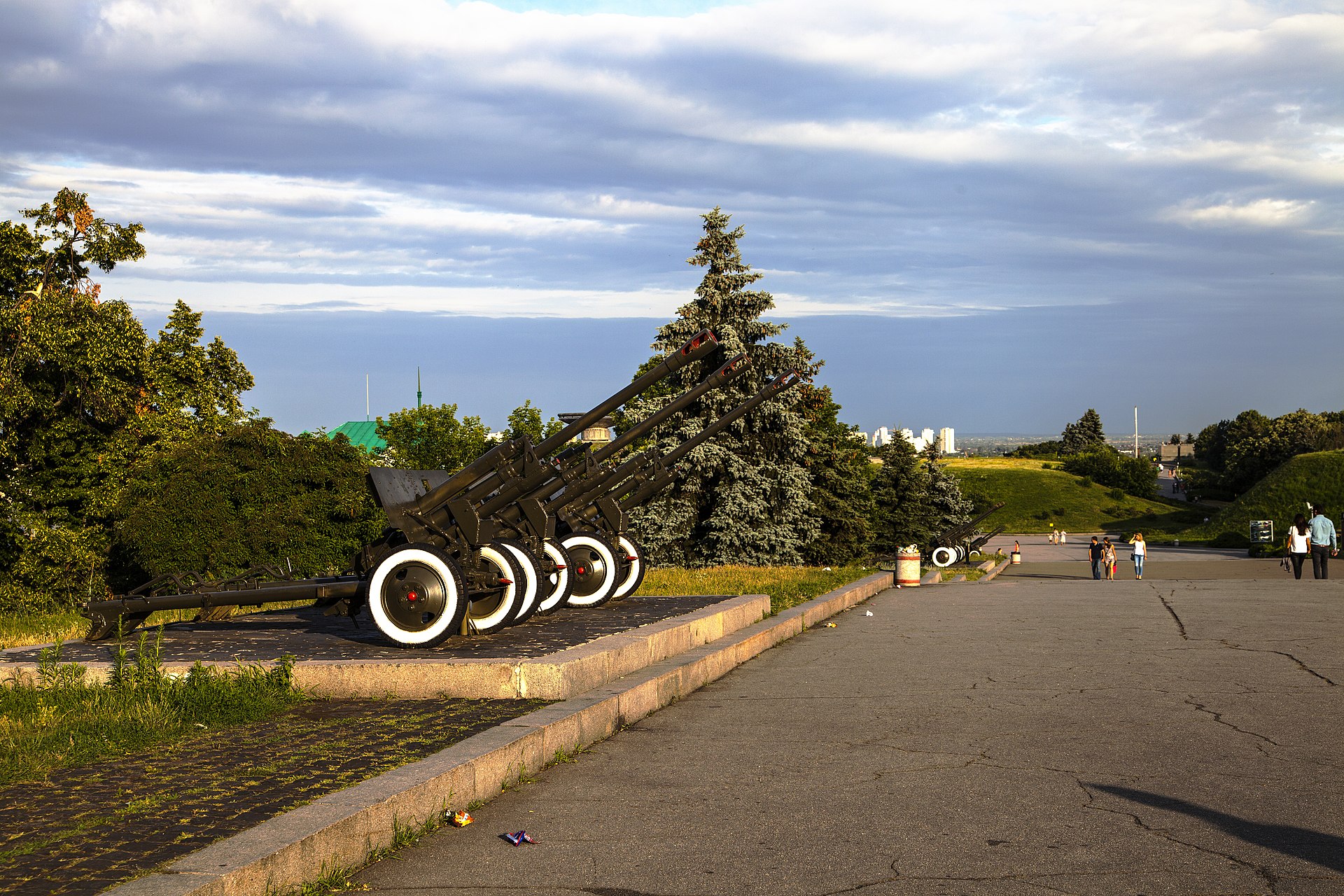 Photo: uk.wikipedia.org
Photo: uk.wikipedia.org
A dramatic change and official rethinking of World War II in Ukraine took place after the Revolution of Dignity and the beginning of Russian armed aggression against Ukraine.
In 2015, the parliament passed a new law On Perpetuating the Victory over Nazism in the Second World War of 1939-1945. At that time, not only the academic community and civil society organizations, including human rights organizations, realized that Russia had turned the memory of the "Great Patriotic War" into an ideological weapon. A large part of the population, including the political class, also realized this.
That is why the parliament had enough votes to pass a law in the decommunization package that actually revised key terms of the late Soviet and Russian canon of World War II memorialization. The terms "Great Patriotic War", "victorious nation", "liberation" (replaced by "expulsion", because freedom did not come as a result of replacing one totalitarian regime with another) disappear from the legislative field, while honoring participants of the Ukrainian liberation movement and victims of Nazism, along with war veterans, is accentuated.
Additionally, the aforementioned legislative package established a de facto ban on using Soviet symbols in memorial events. Before that, the widespread use of the Victory Flag copies on May 9 was visually and legally handled by the glorification of communist symbols, such as the red flag with a hammer and sickle.
_1.jpg) Photo: uk.wikipedia.org
Photo: uk.wikipedia.org
Also, key norms were established clearly defining the period of the 1939-1945 war, without singling out the German-Soviet war of 1941-1945 in any particular way. Although the legislators did not have the political will to move the day of remembrance of the victory over Nazism to May 8 (as in most European countries), they did a key thing, introducing May 8 as the Day of Remembrance and Reconciliation into the official calendar of memorial dates, formally on a par with May 9.
This was a very important signal to society and stimulated academic, public, and political activity to further de-Sovietize and Europeanize war memorialization practices. On the visual level, it was reflected particularly in the widespread replacement of the St. George's ribbon, which has been banned in Ukraine since 2017 (after the Russian invasion), with a red poppy flower.
But the final and fundamental break with Soviet and racist propaganda practices took place in 2023 when the parliament passed the law On the Day of Remembrance and Victory over Nazism in World War II of 1939-1945, introduced by the president.
Not only did it finally end the era of symbolic domination of the historically improper date of May 9 in national memory, but it also fixed the day off on May 8, the Day of Remembrance and Victory over Nazism in World War II of 1939-1945, giving it in fact the maximum importance in people's perception.
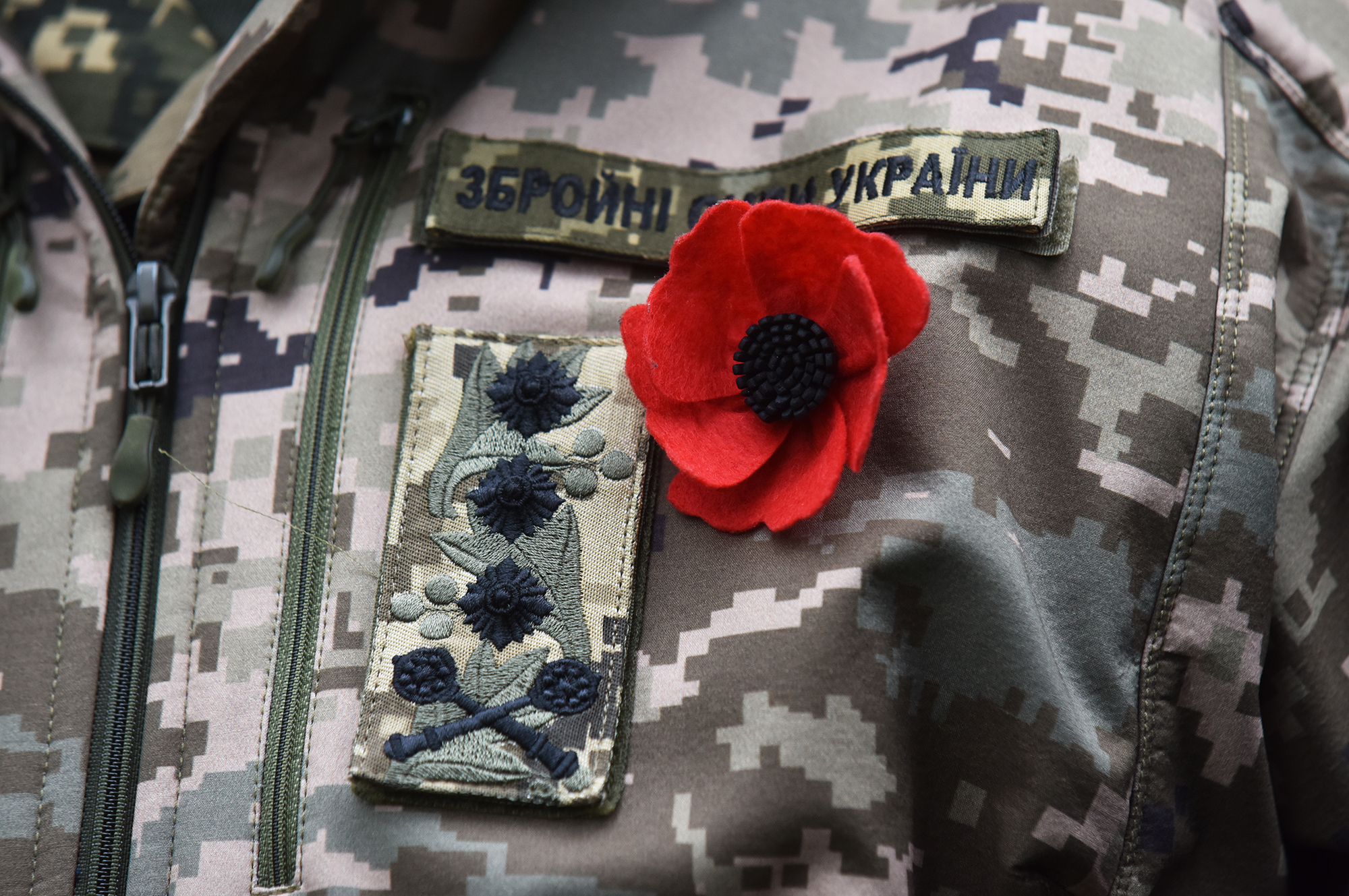 Photo: Getty Images
Photo: Getty Images
The parallel identification of May 9 as Europe Day by a separate presidential decree, without a day off and without any reference to World War II, finally sets the accents, emphasizing its complete semantic separation from previous practices, as well as its legal and practical secondary importance compared to May 8.
It's too early to say that we now have a completely new memorial tradition of commemorating the victory over Nazism in World War II because such things take decades.
But we have definitely come a long way, and now we have a legally correct and ideologically rational starting point for building one of the key components of national memory, which tends to the more humanistic European tradition under the "Never again" slogan, rather than brutal racist revanchism under the "We can do it again" slogan.
Anton Drobovych,
Head of the Ukrainian Institute of National Remembrance

